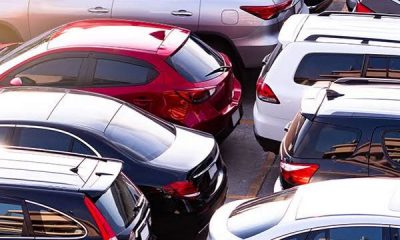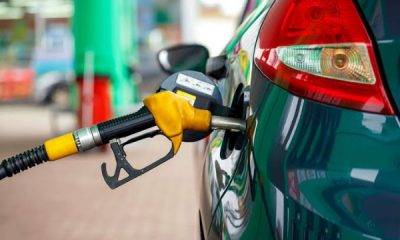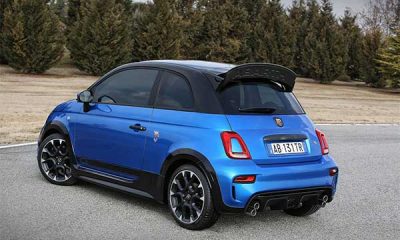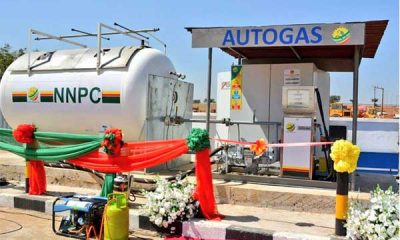
After years of inadvertently serving as dumping grounds for dirty fuels deemed too toxic for Europe, five African countries—Nigeria, Benin, Togo, Ghana, and Ivory Coast—have decided to raise their fuel quality standards.
The move is in response to the findings of a three-year long investigation by Public Eye, a Swiss NGO. It found that Swiss companies often took crude oil from African countries, but sent fuel with high sulphur levels—which can’t be legally sold in Europe—back to Africa.
The companies that did this broke no rules, and the fuel they sold in Africa was within legal limits, given the low fuel quality standards on the continent. But Public Eye, in its report, said the companies “ruthlessly exploit weak regulatory standards and make the local urban populations pay with their health.
Two-thirds of samples examined by Public Eye, taken from gas stations across eight African countries, showed sulphur levels 150 times higher than the permitted European limit of 10 parts per million (ppm). Firms named in the report include Vitol, Trafigura, and Addax & Oryx. (At least one, Vitol, disputed the NGO’s conclusions, telling The Guardian that the co-mingling of fuel in the supply chain makes it “unable to determine the quality of fuel sold at the pump.”)
The decision by the five West African nations to impose stricter standards on fuel imports is expected to curb the inflow of the harmful, dirty fuels, and, in the long term, reduce pollution but details on the timeline and precise implementation had been unclear.
Ghana had targeted an even earlier deadline, but sources said it had not yet finalized its new fuel requirements or issued a fresh timetable.
Several groups, including The United Nations Environmental Programme (UNEP) and the African Refiners Association, have been pushing West Africa for years to mandate higher quality fuel and ban fuels that are illegal in Europe and the United States due to what experts say are calamitous effects on respiratory health – particularly in dense urban areas such as Lagos.
Late last year, the Swiss-based campaign group Public Eye blamed international traders for using the continent as a dumping ground for toxic fuels that are banned elsewhere.
Other African nations, including Kenya, Tanzania, Uganda and Morocco have also increased fuel quality requirements.
But there was some concern in Nigeria, currently struggling with an economic recession, over the substantial up-front cost of demanding higher standards. International oil traders said the proposals would cost at least $10-15 per tonne, or more than $250,000 for each cargo of gasoline, not to add our lack of adhering to standards already set, any shrewd business man can subvert the system.
Effects of bad fuel on automobiles
Now, lets dive into the effects of bad fuel on automobiles and our environment which are adverse indeed. Beyond cars, our epileptic public power supply also means a lot of home and businesses have to burn these fuels with high Sulphur content and generally poor octane rating thereby adding dangerous gasses into the environment. Bad fuel comes in many different varieties. not so funny is the kind that comes out of a pump nozzle in filling stations across the country. According to some sources, there is more bad fuel out there than the industry is willing to admit – and it is causing a significant increase in drivability and emissions problems for many vehicles.
The types of bad gas you should be most concerned about are:
- Petrol that does not contain adequate amounts of dispersant-detergent additives to keep fuel injectors, intake valves and combustion chambers clean.
- Petrol that does not contain the advertised octane rating, or does not have adequate octane to prevent engine-damaging detonation.
- Petrol that contains high Sulphur content
The main issue with gasoline that fails to keep the fuel system clean is quality (or the lack thereof). To save a few pennies per gallon and increase the competitive margin (or profit margin) of his product, a gasoline supplier may choose to reduce or even eliminate the amount of dispersant-detergent additives in his fuel. Or, he may choose to use a less-effective product or one that causes other kinds of problems.
Commonly used deposit-control additives include polysibutylamine, polyisbutylene succinimide and polyisobutylene phenylamine. But these same additives also can build up on intake valve stems causing them to stick. To prevent this from happening, additional additives called “fluidizers” also must be added to the fuel. But over time, these can contribute to the formation of combustion chamber deposits that raise compression and the engine’s octane requirements.
One of the best additives is polyetheramine. It keeps injectors, valves and combustion chambers clean without the help of any additional fluidizers – but it costs more than twice as much as the other commonly used additives.
How much additive does it take to provide an adequate level of protection? Industry sources say the recommended level is about 1,000 parts per million (ppm) of dispersant-detergent in the fuel – which costs the gasoline supplier less than a penny a gallon. Even so, as much as 85% of the gasoline that is being sold contains only one-tenth the recommended dosage, or only 100 ppm of additive. Consequently, bad gas is good for the mechanics and repair business.
When people use gasoline that does not keep their fuel system clean, their injectors gradually clog up with varnish deposits. Some injectors (mostly the older pintle and nozzle style) are more vulnerable to clogging than others. It is not something most motorists notice right away because it takes time for the deposits to accumulate. But with every drive cycle, the accumulation of deposits gradually restricts the nozzle orifice causing a reduction in fuel delivery.
Deposits also disrupt the normal injector spray pattern, which interferes with fuel atomization and mixing. This results in a lean fuel mixture that may cause the engine to misfire, idle poorly, and hesitate or even stall when accelerating.
It does not take much of a restriction in an injector to lean out the fuel mixture. Only an 8-10% restriction in a single fuel injector can be enough to cause a misfire.
A lean mixture caused by dirty injectors also increases the risk of detonation when the engine is working hard under load.
Lean misfire at any speed increases hydrocarbon emissions that may trigger a misfire code and turn on the Check Engine light on 1996 and newer vehicles with OBD II systems. The code will often be a P0300 random misfire code, or you may find one or more misfire codes for individual cylinders depending on which injectors are affected most.
Use of the proper amount of detergent additive helps wash away the varnish deposits and keeps the injectors flowing normally. Varnish buildup is worse after a hot engine is shut off and undergoes a period of heat soak. During this time, any residual fuel that is in the tips of the injectors evaporates and leaves behind the heavier waxy compounds that form varnish deposits. If the next batch of gasoline that squirts through the injectors when the engine is started does not contain enough cleaner, the deposits will remain and continue to accumulate. Eventually it builds up to the point where it restricts the injector and causes drivability problems. This requires cleaning the fuel injectors.
On four-cylinder engines, the #2 and #3 injectors are in the hottest location and tend to clog up faster than the end injectors on cylinders #1 and #4. The same applies to the injectors in the middle cylinders in six- and eight-cylinder engines. The hotter the location, the more vulnerable the injector is to clogging during heat soak after the engine has been shut down.
We can only hope then that the standards that Nigeria and other Africans countries have decided to adopt are strictly adhered to, according to Nigeria’s former minister of the environment Amina Mohammed. Nigeria’s environment minister, says years of importing dirty fuels with high sulphur levels have been a bane to the country’s major cities, four of which are listed among the world’s 20-worst ranked cities for air quality. By “limiting sulphur in fuels from 3,000 parts per million to 50 parts per million,” Mohammed said, Nigeria will see “major air quality benefits” in cities across Africa’s most populous country. The reduced sulphur levels also will allow Nigeria “set modern vehicle standards,” Mohammed said. This is indeed the way to go.
Credit: Muizz Kazeem
See Related Post What You Should Do If You Mistakenly Swallow Fuel

 News5 days ago
News5 days ago
 News1 week ago
News1 week ago
 News1 week ago
News1 week ago
 News6 days ago
News6 days ago
 News6 days ago
News6 days ago
 News5 days ago
News5 days ago
 Car Facts4 days ago
Car Facts4 days ago
 News1 week ago
News1 week ago












